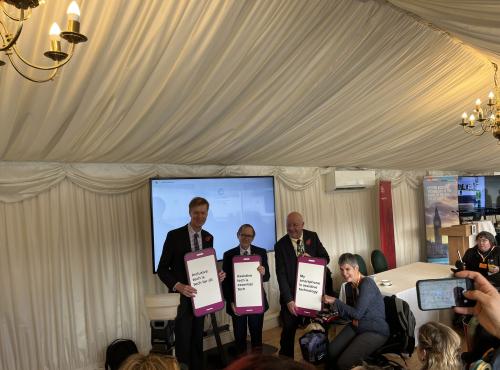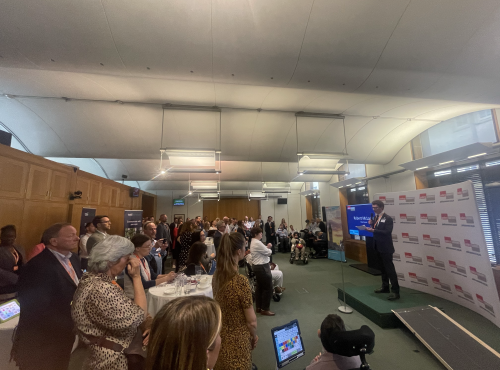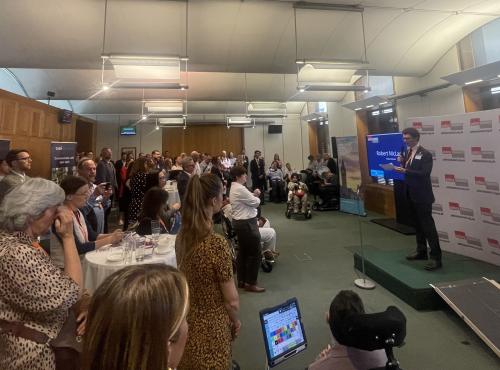Global Accessibility Awareness Day - 20th May 2021
Global Accessibility Awareness Day aims to shine a light on digital access and inclusion for disabled people.
Digital accessibility is about making digital content work for everyone. Disabled people should be able to use online services and content with the same success as those without disabilities. This has become even more important in the wake of the Covid-19 pandemic, when so many aspects of our lives have moved online.
Today, we thought we’d share some of the work we and our partners have been doing in this area.
Unlocking access to support with Artificial Intelligence
The Open University has developed a virtual assistant which provides an alternative way for disabled students to disclose a support need, aiming to provide an experience that is accessible, conversational and comfortable.
Read more about this in a blog.
Arriving at Thriving: Learning from disabled students to ensure access for all
Last October, Policy Connect’s Higher Education Commission launched a report setting out lessons for the government and university leaders from the experiences of disabled people in higher education.
The report recommended that senior leaders in higher education providers take responsibility and accountability for driving change to improve the experiences of their disabled students. It also recommended that the government should create a new system to support disabled people from the classroom to the workplace. This journey could start with Education, Health and Care Plans, moving through to the Disabled Students’ Allowance and Access to Work, addressing disabled people’s financial, practical and other needs. This cross-departmental system should have the strategic objective of removing disadvantage and ensuring full access and inclusion for disabled people in learning, employment, and all stages of life, including in higher education.
Arriving at Thriving was cited by a report from the Office for Students on online and digital learning in higher education during the pandemic, Gravity assist: propelling higher education towards a brighter future. It was also referenced by the Snowdon Trust and the Global Disability Innovation Hub’s Disabled Students Survey, which builds on a number of Arriving at Thriving’s findings and recommendations.
Read more about Arriving at Thriving on our website.
Accessible virtual learning environments
In 2018 we produced a report in advance of the new digital accessibility regulations becoming law, to help the government and further/higher education providers put in place the necessary guidance and practice to turn these new regulations into reality.
The report’s recommendations aimed to do much more than achieving compliance with the regulations. They set out how the requirements can be met in a way which improves learning and education for all students, whether disabled or not.
This report was also cited by Gravity assist and Beyond the bare minimum: Are universities and colleges doing enough for disabled students?, another report from the Office for Students.
Read more about Accessible virtual learning environments on our website.
The All-Party Parliamentary Group for Assistive Technology
Policy Connect also provides the secretariat for the All-Party Parliamentary Group for Assistive Technology.
The APPGAT is currently running two research commissions. The first is on how society can take advantage of technology to support disabled people into employment; we want to tackle the disability employment gap and make employment accessible for all. Inclusive and accessible practice benefits everyone, whether it’s applied to the design of a technology, the culture of a workplace, or the delivery of a government service.
The second commission, launched last week, is on Smart Homes and Independent Living. Smart home technologies allow people to control household appliances, fixtures and fittings through a single device. These new tools are an increasingly important part of disabled and older people’s lives. They offer unprecedented control over people’s immediate environment and connect people more easily with family, friends and public services, importantly but not solely the health and social care sector.



